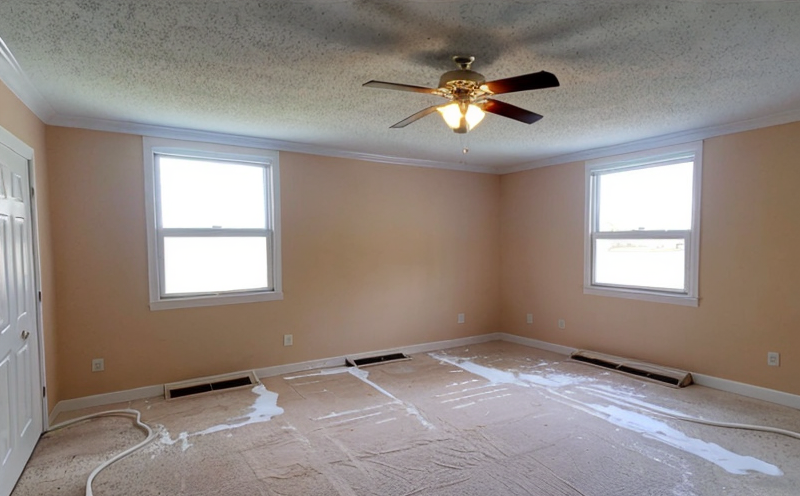ASTM D789 Thermal Stability of Plastics by Heat Aging
The ASTM D789 standard is a fundamental method used to determine the thermal stability of plastics. This test evaluates how well plastic materials withstand exposure to high temperatures over time, which is critical for ensuring product durability and performance in various applications.
Thermal stability testing is essential because many plastic parts are exposed to elevated temperatures during manufacturing or use. For instance, automotive components, electrical insulation, and construction materials often undergo heat aging. Understanding the thermal behavior of these plastics can prevent premature failure due to degradation over time.
The ASTM D789 method involves placing specimens in an oven under controlled conditions for a specified period. The temperature is gradually increased from room temperature up to 230°C, and the test duration ranges between 500 and 1680 hours depending on the plastic’s expected service life. During this time, physical properties such as tensile strength, flexural modulus, and elongation at break are measured.
Specimen preparation is critical to ensuring accurate results. Typically, specimens are cut from commercial-grade plastic samples or processed according to specific dimensions outlined in ASTM D789. The surface finish must be smooth to avoid any external factors affecting the test outcome. After conditioning, specimens are placed into a preheated oven and exposed to the specified temperature for the required duration.
The primary apparatus used in this testing is an oven capable of maintaining precise temperature control within ±2°C throughout the entire heating cycle. Oven manufacturers such as Muffle Furnaces provide equipment that meets ASTM D789 requirements, ensuring consistent test conditions across multiple samples.
Testing typically involves comparing pre- and post-test properties to assess changes in material characteristics due to heat exposure. Acceptance criteria vary based on industry standards but generally include maintaining a specified percentage of original mechanical performance after the thermal aging process. For example, a tensile strength reduction less than 30% may be acceptable depending on the application.
Real-world applications where this test is particularly useful include automotive manufacturers who need to ensure their interior components can withstand high temperatures without degrading. Similarly, electrical equipment producers rely on ASTM D789 results to guarantee that insulation materials will remain intact under operating conditions. Construction companies also benefit from knowing which plastics will perform reliably in extreme weather environments.
In summary, the ASTM D789 thermal stability test provides critical insights into a plastic’s ability to maintain its integrity when subjected to high temperatures over extended periods. This information is invaluable for designing durable products that meet regulatory requirements while performing optimally throughout their lifecycle.
Applied Standards
| Standard Name | Description |
|---|---|
| ASTM D789-18 Standard Test Method for Thermal Stability of Plastics by Heat Aging | This standard specifies the procedure for determining the thermal stability of plastics using heat aging. It provides detailed instructions on specimen preparation, test conditions, and evaluation criteria. |
| ASTM D648-15 Standard Test Method for Tensile Properties of Plastics | Used to measure tensile strength after heat aging per ASTM D789. This standard ensures accurate measurement techniques are employed during the test. |
| Standard Name | Description |
|---|---|
| ASTM D638-21 Standard Test Method for Tensile Properties of Plastics | Similar to ASTM D648 but focuses on tensile elongation. This additional measurement provides a more comprehensive understanding of the material’s behavior under stress. |
| ASTM D790-18 Standard Test Method for Flexural Properties of Unreinforced and Reinforced Plastics and Electrical Insulating Materials | Flexural modulus is another key property measured after heat aging. This standard ensures consistent testing methods that provide reliable data. |
Eurolab Advantages
At Eurolab, we offer comprehensive ASTM D789 thermal stability testing services tailored to meet your specific needs. Our state-of-the-art facilities equipped with advanced ovens and precise temperature control systems ensure accurate and reliable results.
We employ experienced technicians who are proficient in specimen preparation, oven operation, and data interpretation according to ASTM standards. This expertise guarantees consistent test outcomes across multiple samples, providing you with confidence in the reliability of our findings.
Our laboratory adheres strictly to current versions of relevant ASTM standards, ensuring that all tests comply with the latest industry requirements. We also offer rapid turnaround times for your convenience while maintaining high-quality results.
In addition to ASTM D789 testing, Eurolab provides a full range of complementary services including mechanical property evaluation and chemical analysis. This integrated approach allows us to provide holistic insights into your materials’ performance characteristics beyond just thermal stability.
Why Choose This Test
Selecting the appropriate test method is crucial for ensuring accurate assessments of plastic materials' thermal stability. Here are several reasons why choosing ASTM D789 is advantageous:
Accurate Data: The ASTM D789 standard provides a standardized approach to measuring thermal stability, offering precise data that can be consistently reproduced.
Industry Acceptance: This test method enjoys wide acceptance within the plastics industry. It ensures that your products meet international quality standards and regulatory requirements.
Comprehensive Evaluation: By evaluating multiple physical properties post-aging, ASTM D789 offers a holistic view of how well materials perform under heat exposure.
Cost-Effective Solutions: With our competitive pricing structure and fast turnaround times, you can get reliable results without compromising on quality.
Expertise: Our team of qualified professionals ensures that every test is conducted according to the latest ASTM guidelines. You receive not only accurate measurements but also expert interpretations that guide your decision-making process.
Comprehensive Reporting: We provide detailed reports complete with graphs and charts, making it easy for you to understand the results and their implications for product design and manufacturing processes.





